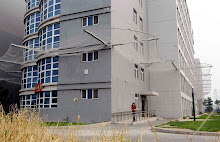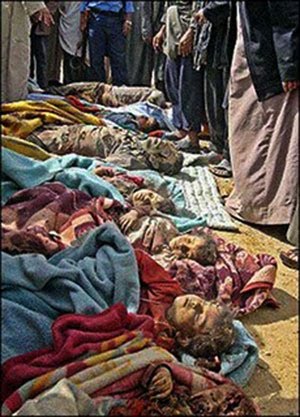 Washington Post
Washington PostThe U.S. military is funding a massive protection racket in Afghanistan, indirectly paying tens of millions of dollars to warlords, corrupt public officials and the Taliban to ensure safe passage of its supply convoys throughout the country, according to congressional investigators.
The security arrangements, part of a $2.16 billion transport contract, violate laws on the use of private contractors, as well as Defense Department regulations, and "dramatically undermine" larger U.S. objectives of curtailing corruption and strengthening effective governance in Afghanistan, a report released late Monday said.
The report describes a Defense Department that is well aware that some of the money paid to contractors winds up in the hands of warlords and insurgents. Military logisticians on the ground are focused on getting supplies where they are needed and have "virtually no understanding of how security is actually provided" for the local truck convoys that transport more than 70 percent of all goods and materials used by U.S. troops. Alarms raised by prime trucking contractors were met by the military "with indifference and inaction," the report said.
"The findings of this report range from sobering to shocking," Rep. John Tierney (D-Mass.) wrote in an introduction to the 79-page report, titled "Warlord, Inc., Extortion and Corruption Along the U.S. Supply Chain in Afghanistan."
The report comes as the number of U.S. casualties is rising in the Afghan war, and public and congressional support is declining. The administration has been on the defensive in recent weeks, insisting that the slow progress of anti-Taliban offensives in Helmand province and the city of Kandahar does not mean that more time is needed to assess whether President Obama's strategy is working.
"I think it's much too early to draw a negative conclusion," said a senior administration official, speaking on the condition of anonymity to discuss internal deliberations. "I think there's more positive than negative. We're heading toward a year-end assessment, which will be a big one for us." The review was set when Obama announced in December that he would send an additional 30,000 troops to Afghanistan and begin to withdraw them in July 2011.
Tierney is chairman of the national security subcommittee of the House Committee on Oversight and Government Reform, whose majority staff spent six months preparing the report. A proponent of a smaller U.S. military footprint in Afghanistan and targeted attacks on insurgents, Tierney said in an interview Monday that he hopes the report will help members of Congress "analyze whether they think this is the most effective way to go about dealing with terrorism. Or the most cost-effective way."
The report's conclusions will be introduced at a hearing Tuesday at which senior military and defense officials are scheduled to testify. The report says that all evidence and findings were made available to Republicans on the subcommittee. A spokesman for Rep. Jeff Flake (Ariz.), the ranking Republican, said the lawmaker will not comment until he has seen the entire report.
In testimony shortly after Obama's strategy announcement, Secretary of State Hillary Rodham Clinton said that "much of the corruption" in Afghanistan has been fueled by billions of dollars' worth of foreign money spent there, "and one of the major sources of funding for the Taliban is the protection money."
Military officials said that they have begun several corruption investigations in Afghanistan and that a task force has been named, headed by Navy Rear Adm. Kathleen Dussault, director of logistics and supply operations for the chief of naval operations and former head of the Baghdad-based joint contracting command for Iraq and Afghanistan.






























No comments:
Post a Comment